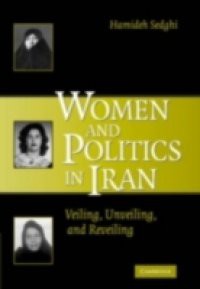Why were urban women veiled in the early 1900s, unveiled from 1936 to 1979, and reveiled after the 1979 revolution? This question forms the basis of Hamideh Sedghi's original and unprecedented contribution to politics and Middle Eastern studies. Using primary and secondary sources, Sedghi offers new knowledge on women's agency in relation to state power. In this rigorous analysis she places contention over women at the centre of the political struggle between secular and religious forces and demonstrates that control over women's identities, sexuality, and labor has been central to the consolidation of state power. Sedghi links politics and culture with economics to present an integrated analysis of the private and public lives of different classes of women and their modes of resistance to state power.

